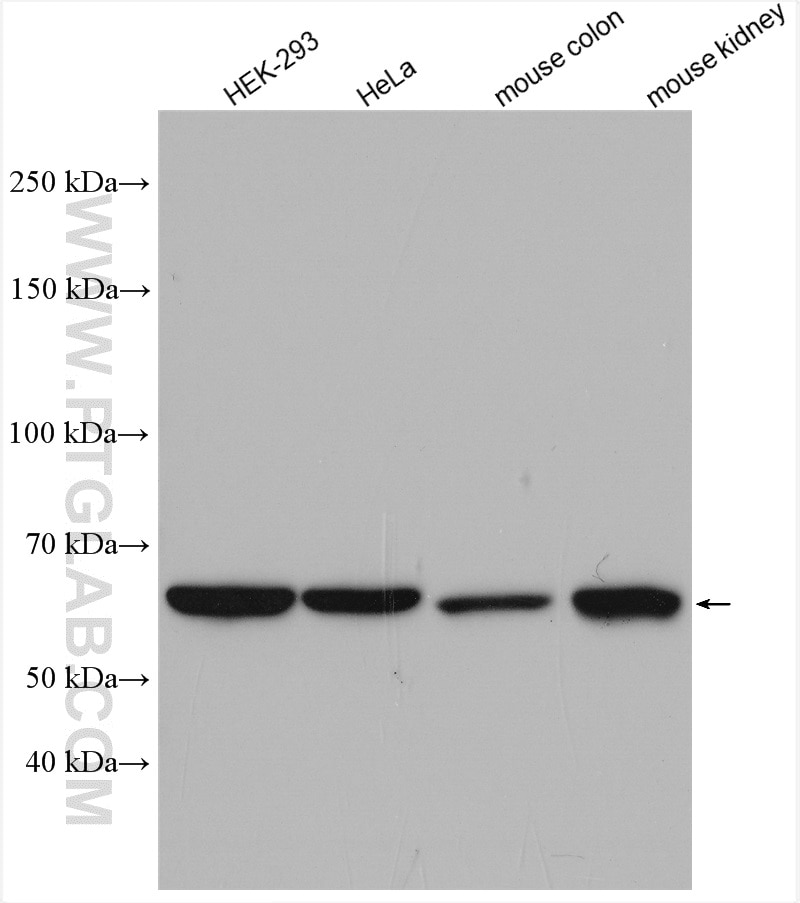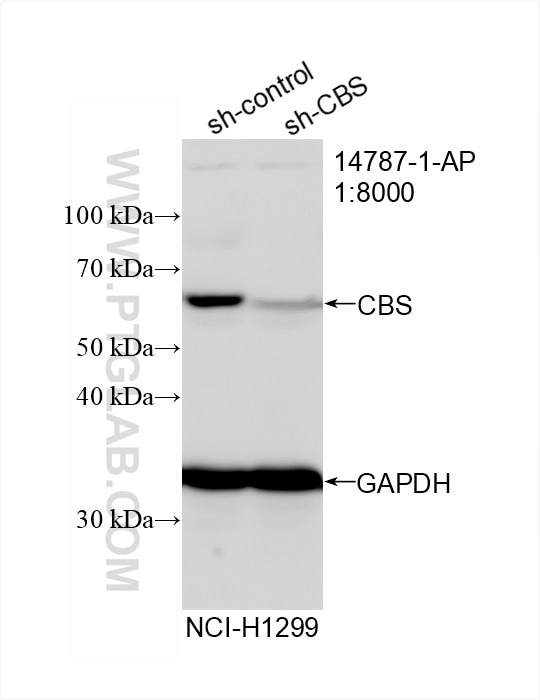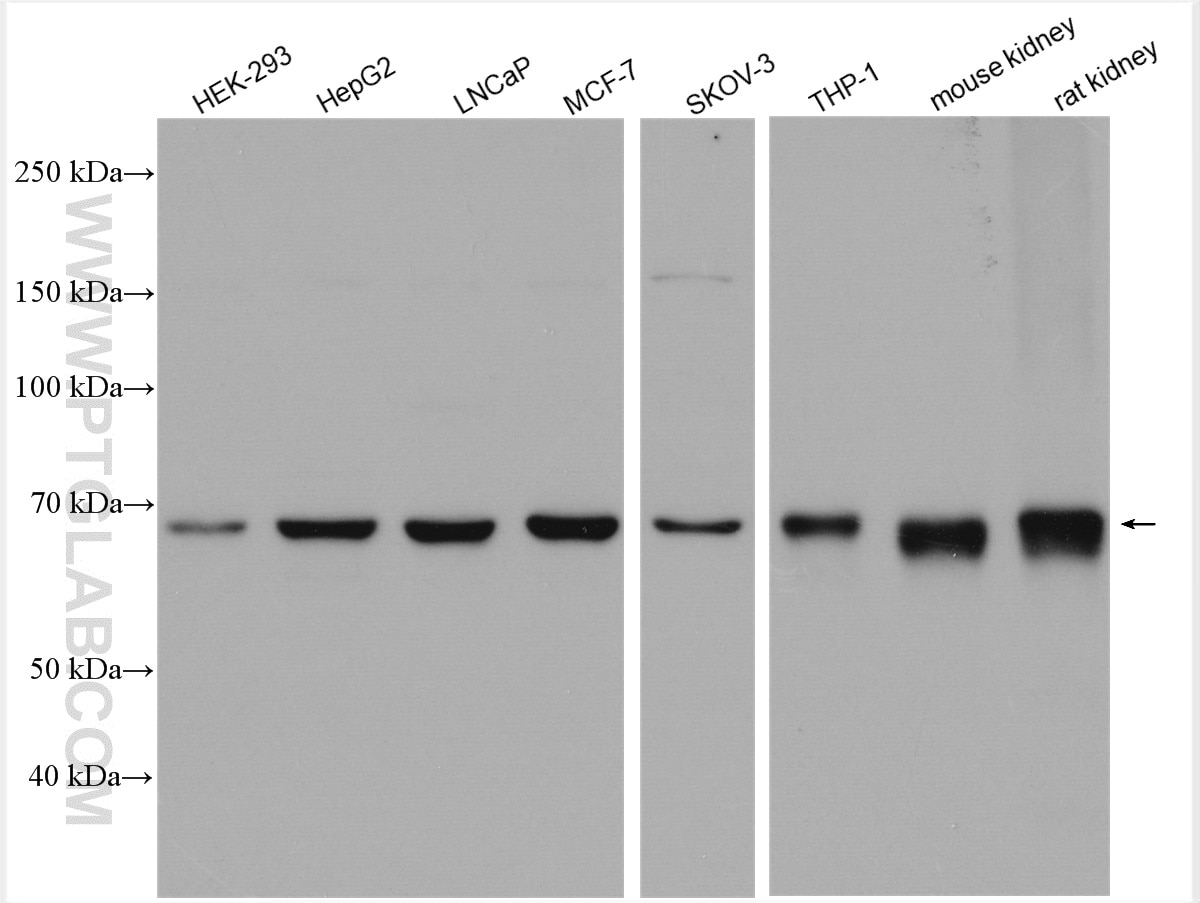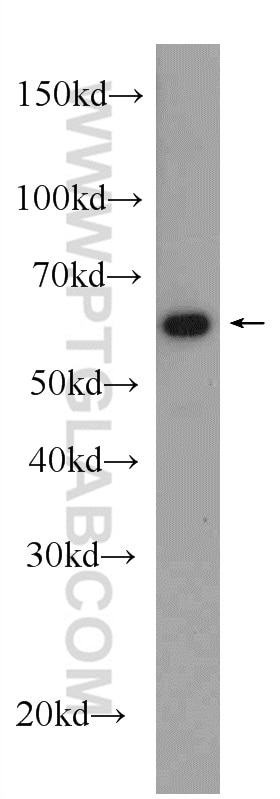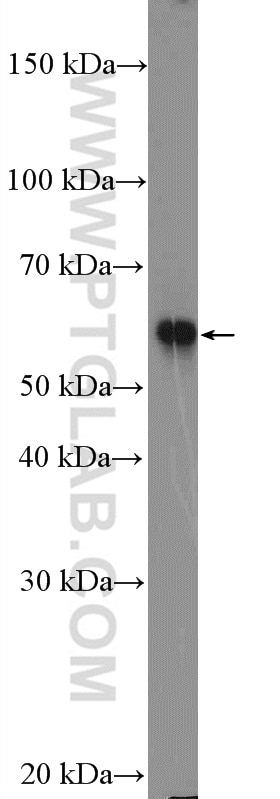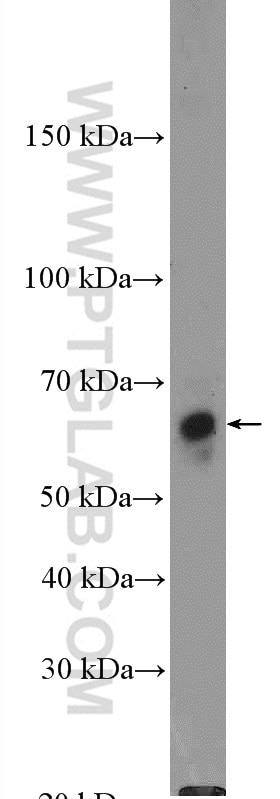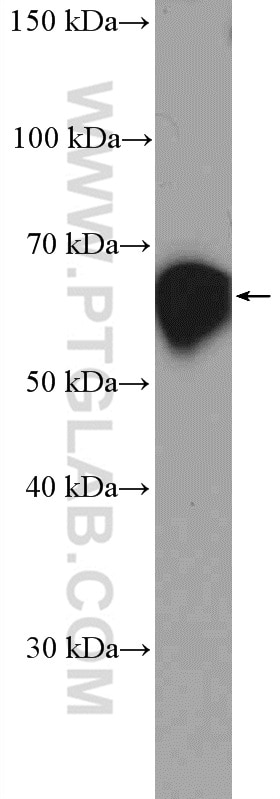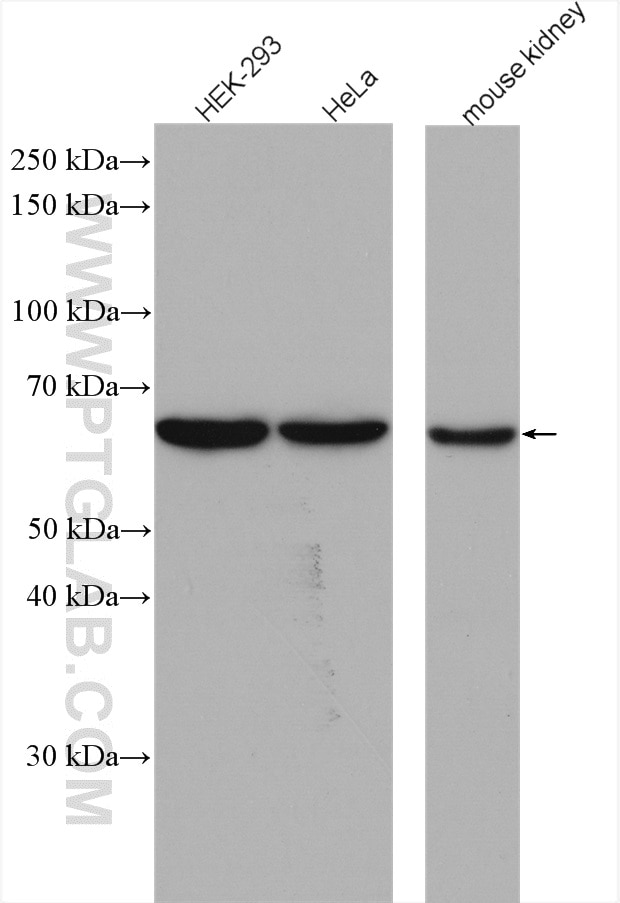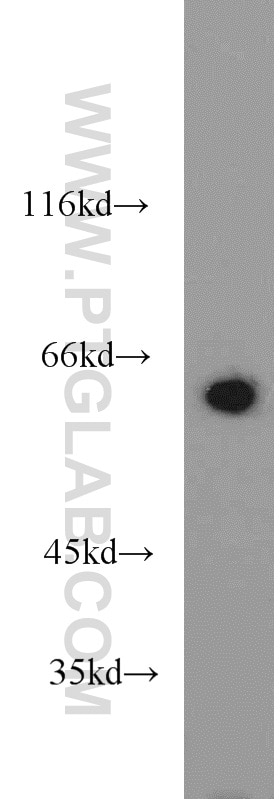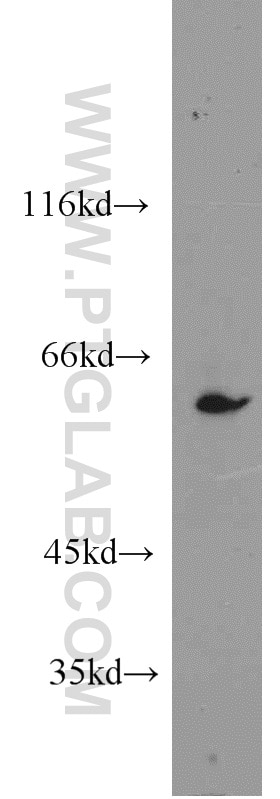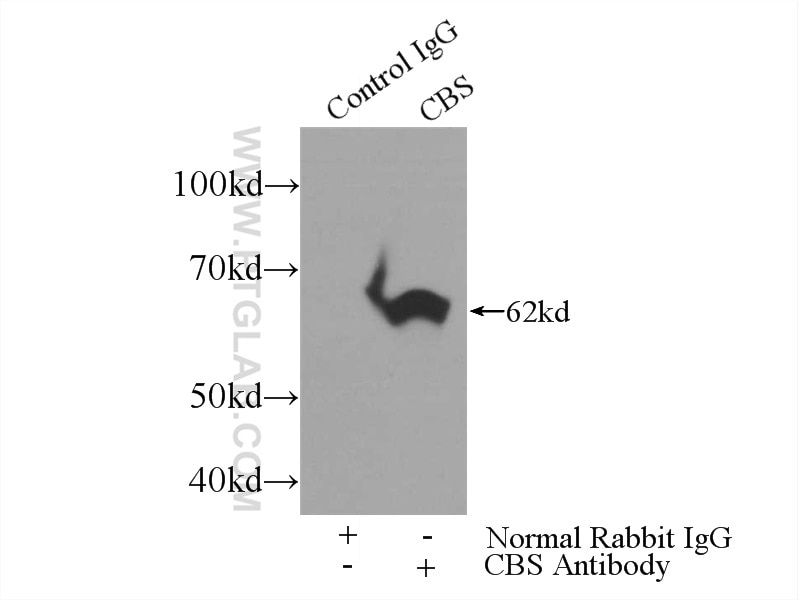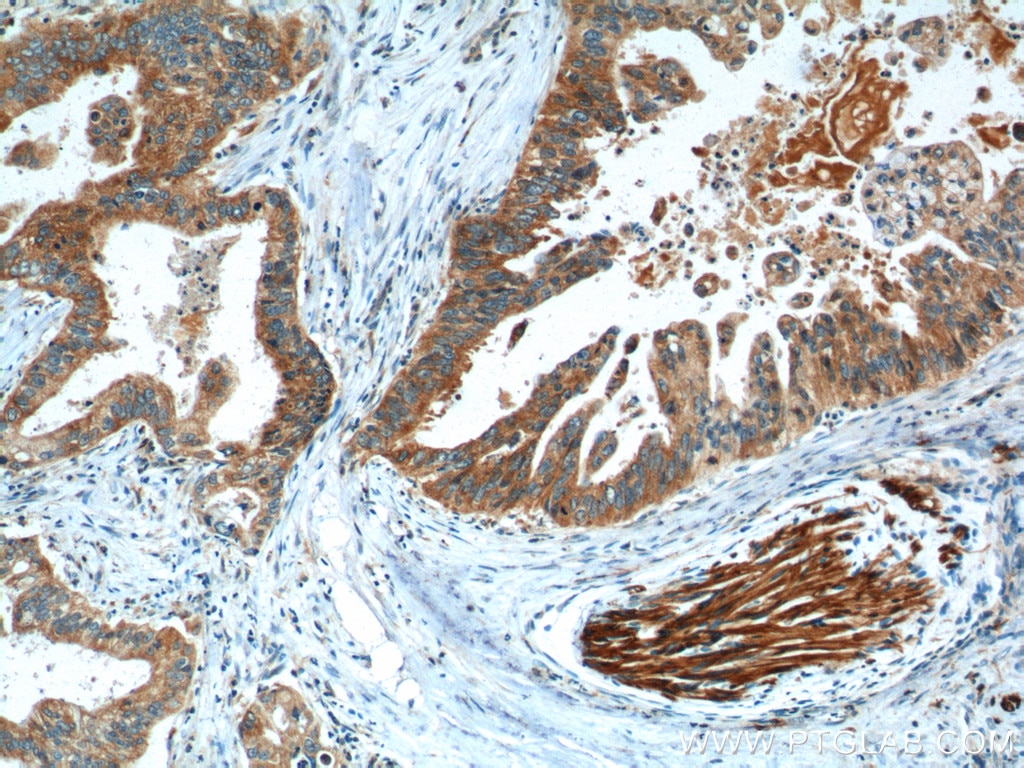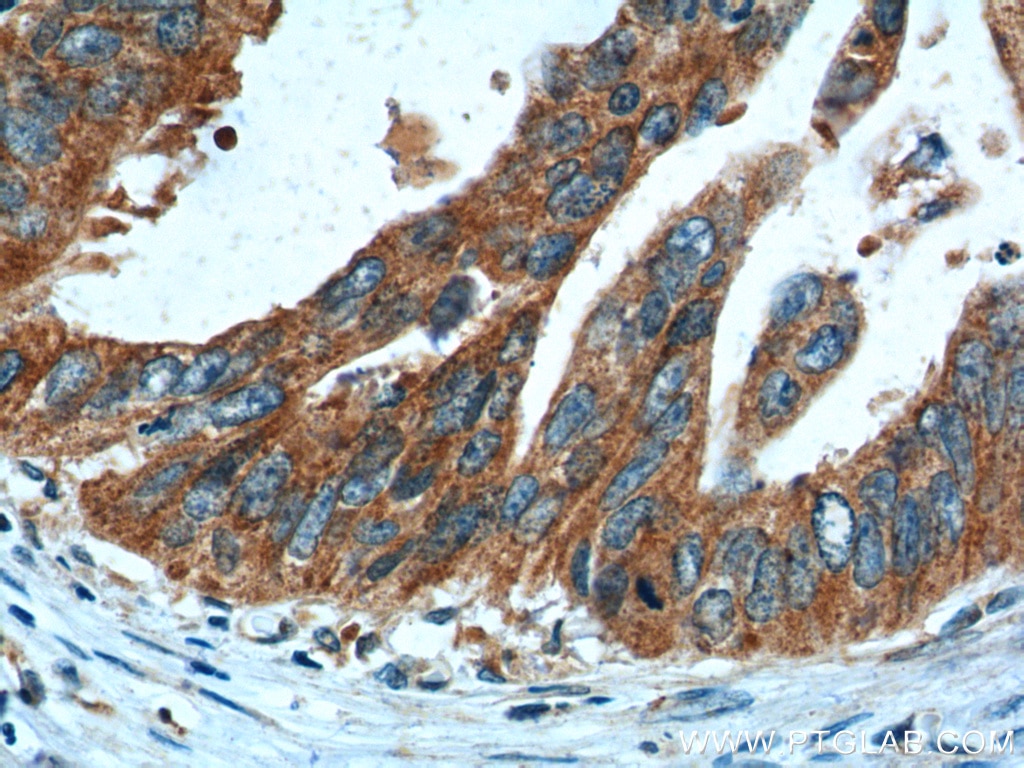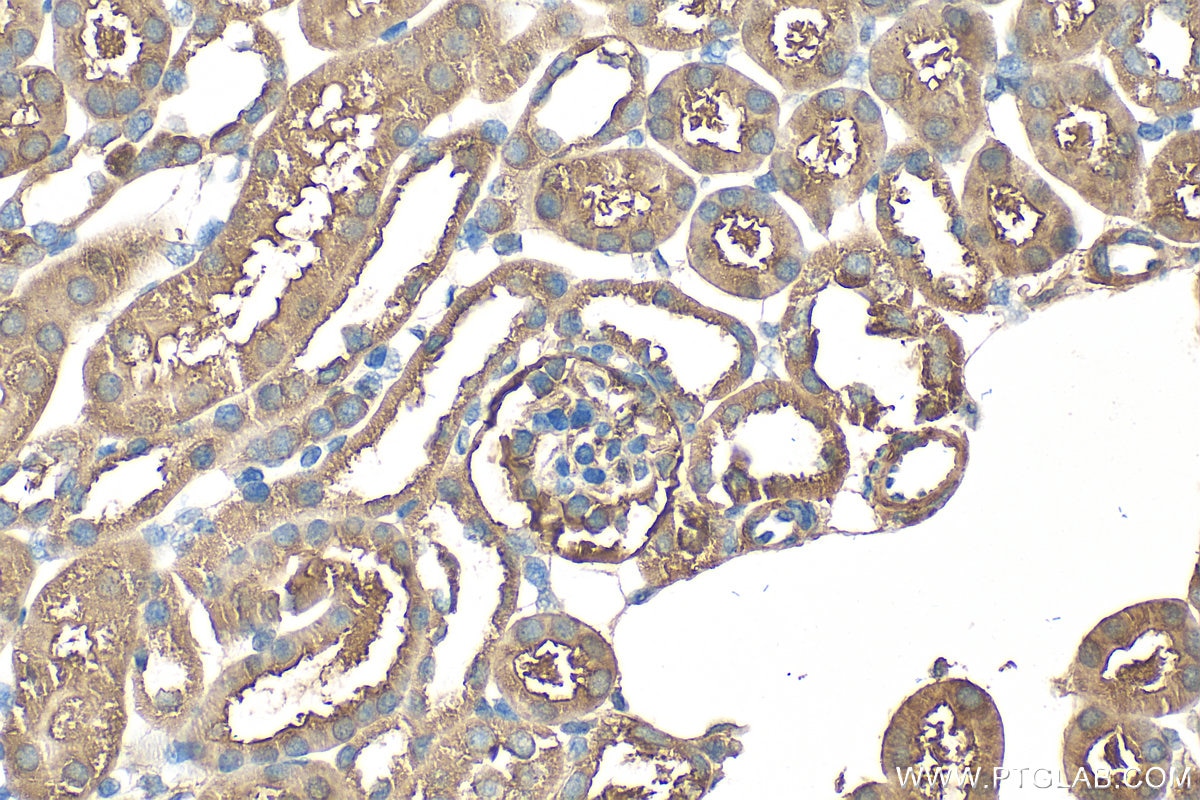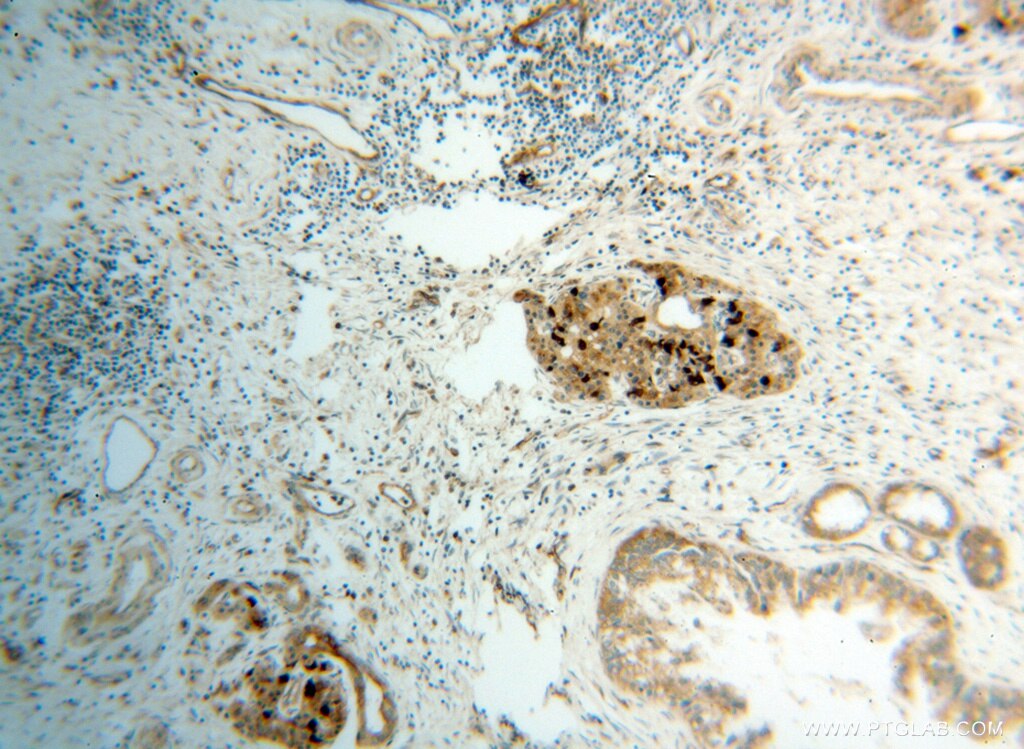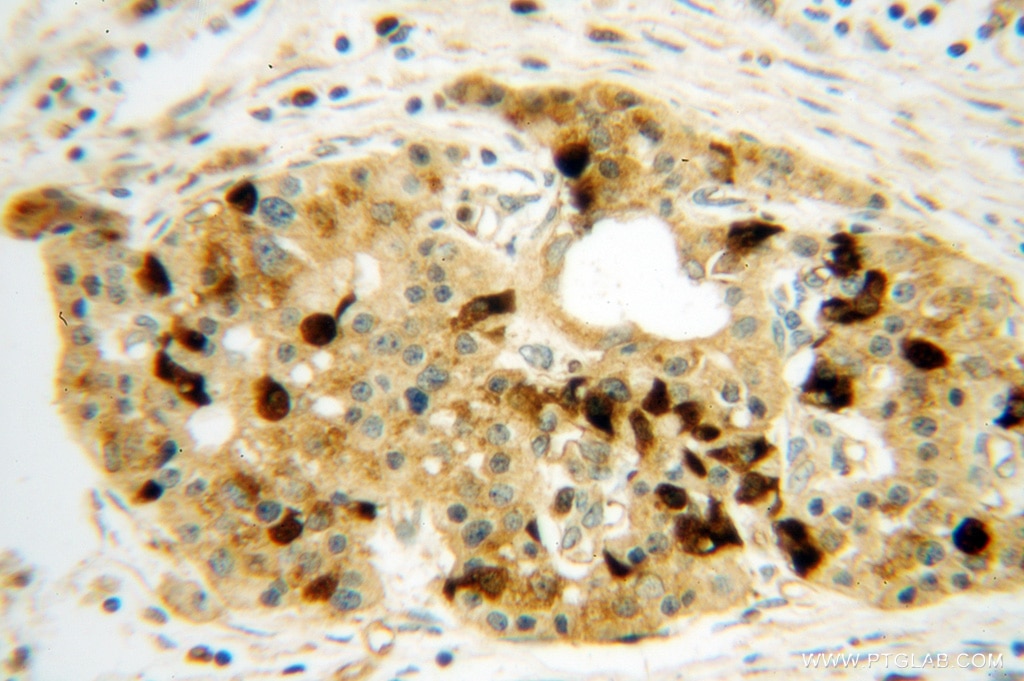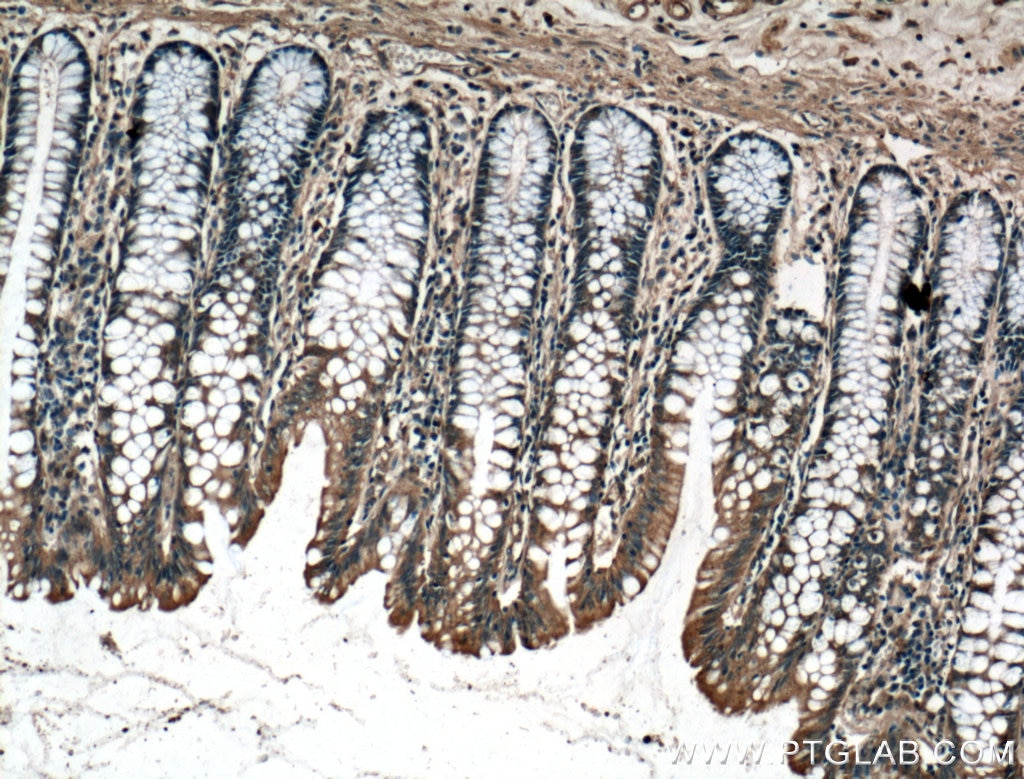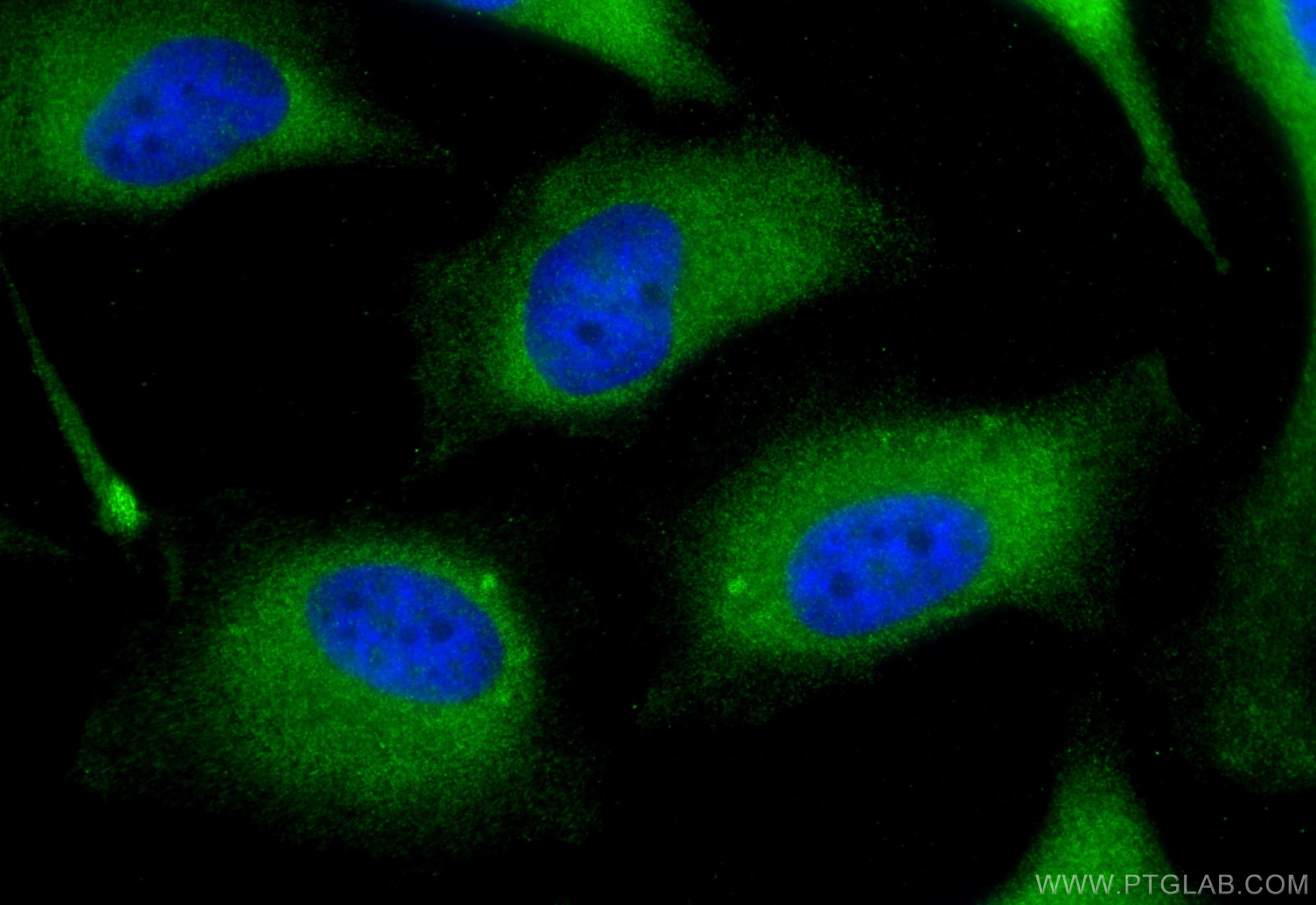- Featured Product
- KD/KO Validated
CBS Polyklonaler Antikörper
CBS Polyklonal Antikörper für WB, IHC, IF/ICC, IP, ELISA
Wirt / Isotyp
Kaninchen / IgG
Getestete Reaktivität
human, Maus, Ratte und mehr (3)
Anwendung
WB, IHC, IF/ICC, IP, ELISA
Konjugation
Unkonjugiert
Kat-Nr. : 14787-1-AP
Synonyme
Geprüfte Anwendungen
| Erfolgreiche Detektion in WB | HEK-293-Zellen, HeLa-Zellen, HepG2-Zellen, LNCaP-Zellen, MCF-7-Zellen, Maus-Kolongewebe, Mausnierengewebe, NCI-H1299-Zellen, Rattenhirngewebe, Rattennierengewebe, Rattenlebergewebe, SKOV-3-Zellen, THP-1-Zellen |
| Erfolgreiche IP | Mausnierengewebe |
| Erfolgreiche Detektion in IHC | humanes Pankreaskarzinomgewebe, humanes Kolongewebe, Mausnierengewebe Hinweis: Antigendemaskierung mit TE-Puffer pH 9,0 empfohlen. (*) Wahlweise kann die Antigendemaskierung auch mit Citratpuffer pH 6,0 erfolgen. |
| Erfolgreiche Detektion in IF/ICC | HeLa-Zellen |
Empfohlene Verdünnung
| Anwendung | Verdünnung |
|---|---|
| Western Blot (WB) | WB : 1:1000-1:5000 |
| Immunpräzipitation (IP) | IP : 0.5-4.0 ug for 1.0-3.0 mg of total protein lysate |
| Immunhistochemie (IHC) | IHC : 1:100-1:400 |
| Immunfluoreszenz (IF)/ICC | IF/ICC : 1:50-1:500 |
| It is recommended that this reagent should be titrated in each testing system to obtain optimal results. | |
| Sample-dependent, check data in validation data gallery | |
Veröffentlichte Anwendungen
| KD/KO | See 4 publications below |
| WB | See 113 publications below |
| IHC | See 24 publications below |
| IF | See 19 publications below |
Produktinformation
14787-1-AP bindet in WB, IHC, IF/ICC, IP, ELISA CBS und zeigt Reaktivität mit human, Maus, Ratten
| Getestete Reaktivität | human, Maus, Ratte |
| In Publikationen genannte Reaktivität | human, Hausschwein, Hund, Kaninchen, Maus, Ratte |
| Wirt / Isotyp | Kaninchen / IgG |
| Klonalität | Polyklonal |
| Typ | Antikörper |
| Immunogen | CBS fusion protein Ag6437 |
| Vollständiger Name | cystathionine-beta-synthase |
| Berechnetes Molekulargewicht | 61 kDa |
| Beobachtetes Molekulargewicht | 61-63 kDa |
| GenBank-Zugangsnummer | BC000440 |
| Gene symbol | CBS |
| Gene ID (NCBI) | 875 |
| Konjugation | Unkonjugiert |
| Form | Liquid |
| Reinigungsmethode | Antigen-Affinitätsreinigung |
| Lagerungspuffer | PBS with 0.02% sodium azide and 50% glycerol |
| Lagerungsbedingungen | Bei -20°C lagern. Nach dem Versand ein Jahr lang stabil Aliquotieren ist bei -20oC Lagerung nicht notwendig. 20ul Größen enthalten 0,1% BSA. |
Hintergrundinformationen
The CBS gene encodes cystathionine beta-synthase, which catalyzes the first irreversible step of transsulfuration. The CBS enzyme is a homotetramer of 63-kD subunits and requires pyridoxal phosphate and heme for activity(PMID:11230183). CBS protein is localized in most areas of the brain, but predominantly in the cell bodies and neuronal processes of Purkinje cells and Ammon's horn neurons(PMID:12588964).
Protokolle
| PRODUKTSPEZIFISCHE PROTOKOLLE | |
|---|---|
| WB protocol for CBS antibody 14787-1-AP | Protokoll herunterladen |
| IHC protocol for CBS antibody 14787-1-AP | Protokoll herunterladenl |
| IF protocol for CBS antibody 14787-1-AP | Protokoll herunterladen |
| IP protocol for CBS antibody 14787-1-AP | Protokoll herunterladen |
| STANDARD-PROTOKOLLE | |
|---|---|
| Klicken Sie hier, um unsere Standardprotokolle anzuzeigen |
Publikationen
| Species | Application | Title |
|---|---|---|
Mol Cell Spatiotemporal Proteomic Analysis of Stress Granule Disassembly Using APEX Reveals Regulation by SUMOylation and Links to ALS Pathogenesis. | ||
Mol Cell mTORC1 stimulates cell growth through SAM synthesis and m6A mRNA-dependent control of protein synthesis. | ||
Nat Commun Remote ischemic conditioning counteracts the intestinal damage of necrotizing enterocolitis by improving intestinal microcirculation. | ||
Redox Biol Endogenous hydrogen sulfide accelerated trauma-induced heterotopic ossification through the Ca2+/ERK pathway-enhanced aberrant osteogenic activity | ||
Cancer Res PRMT1 sustains de novo fatty acid synthesis by methylating PHGDH to drive chemoresistance in triple-negative breast cancer | ||
Redox Biol Cystathionine γ-lyase promotes estrogen-stimulated uterine artery blood flow via glutathione homeostasis. |
